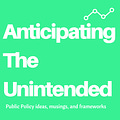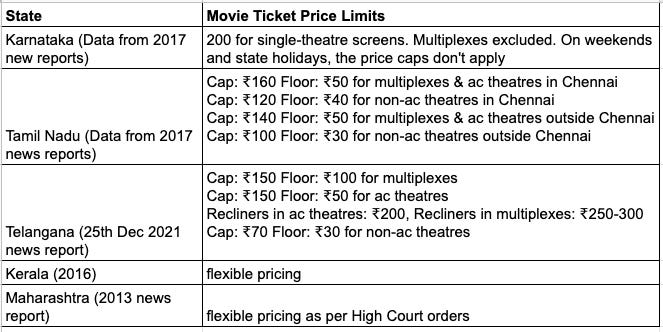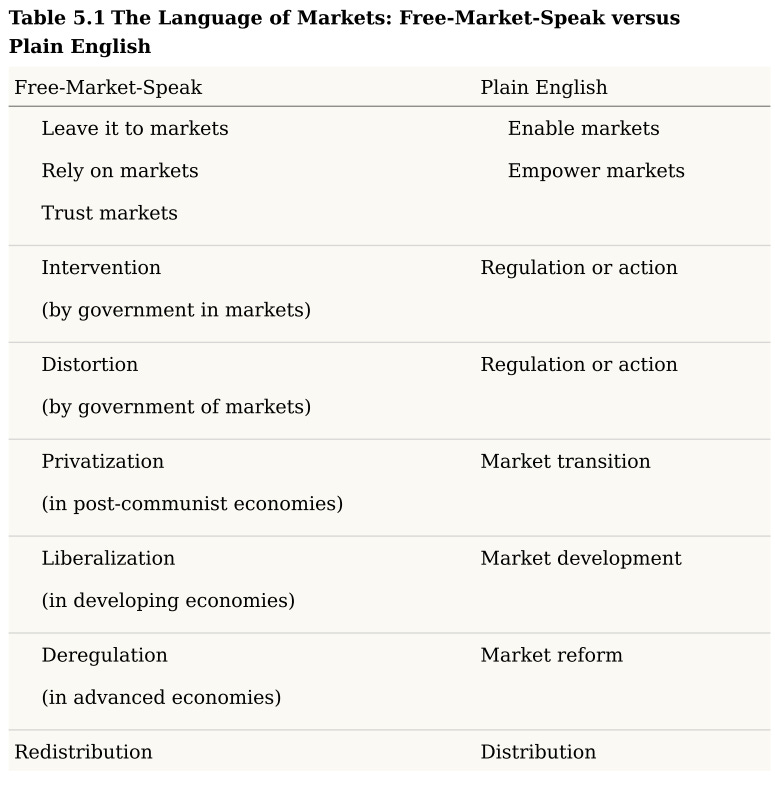Global Policy Watch: Joan Didion On Morality
Insights on global issues of the day
- RSJ
I want to write about the Andhra Pradesh cinema ticket price cap kerfuffle this week (read here for context). A regular reader, Prem Sagar, wrote to us last week giving us a picture of what was happening in Tollywood. All the great ingredients of a timeless PolicyWTF have come together there - good intentions, political games, conspiracy theories, a government order on price controls that Indira Gandhi would have been proud of and the inevitable unintended consequences. I wept with joy going through them all.
But before that Joan Didion.
The great chronicler of American life passed away a couple of weeks back. Why Joan Didion in a public policy newsletter, you may ask? Public policy is an interdisciplinary science. At the heart of it is understanding the public - the basis for its motives, its fears and insecurities and its wants. There was no one better than Joan Didion to show a mirror to a society in prose that was unsparing, sparse and crystalline. Didion didn’t go looking for grand narratives. There was no conscious painting of a big picture. She was intimate in her approach and got busy with the minutiae. But from that appeared something that made you rethink your priors. She wrote as she saw it. And she saw a lot. From the underlying vacuity of the unrest in colleges in the late 60s, the hollowness of the counterculture movement in California, the depravity hiding under Kennedy’s Camelot, the absence of any ideological truth bar nihilism among Black Panthers, the mendacity of Nixon and the arriviste pretensions of the Reagans. She covered them all with insight and acuity.
Not many realise today that Didion grew up as a Goldwater conservative who wrote quite often in that conservative bible, the National Review during the late 50s and 60s where she reviewed films, eviscerated other authors and their books (her takedown of Salinger’s Catcher In The Rye is one for the ages), championed individual liberty and cautioned against the inevitable disorder that stems from collective self-righteous passions. No one was spared. Later in her life, she would turn that flint-edged gaze onto herself in her collection of essays ‘Where I Was From’ where she reflects on the myths and beliefs of the old California way that shaped her person. And on how wrong she could have been.
Didion On Morality
Among her essays, a particular favourite of mine is On Morality (in the anthology Slouching Towards Bethlehem) where she holds the word morality in her finger and turns it over and over again against the cold light of the day to make sense of it. I often think of it as a short cultural companion piece to Adam Smith’s The Theory of Moral Sentiments in its dissection of morality. She writes:
“What does it (morality) mean? It means nothing manageable. There is some sinister hysteria in the air out here tonight, some hint of the monstrous perversion to which any human idea can come. “I followed my own conscience.” “I did what I thought was right.”
How many madmen have said it and meant it? How many murderers? Klaus Fuchs said it, and the men who committed the Mountain Meadows Massacre said it, and Alfred Rosenberg said it. And, as we are rotely and rather presumptuously reminded by those who would say it now, Jesus said it. Maybe we have all said it, and maybe we have been wrong. Except on that most primitive level—our loyalties to those we love—what could be more arrogant than to claim the primacy of personal conscience?
At least some of the time, the world appears to me as a painting by Hieronymous Bosch; were I to follow my conscience then, it would lead me out onto the desert with Marion Faye, out to where he stood in The Deer Park looking east to Los Alamos and praying, as if for rain, that it would happen: “...let it come and clear the rot and the stench and the stink, let it come for all of everywhere, just so it comes and the world stands clear in the white dead dawn.”
She then agonises over the frequency of the word ‘morality’ appearing in politics, media and everyday lives. Like most timeless pieces, there’s both prescience and a definite universality in her analysis of morality. She puts her finger on the performative nature of those sermonising others in society:
“You see, I want to be quite obstinate about insisting that we have no way of knowing—beyond that fundamental loyalty to the social code—what is “right” and what is “wrong,” what is “good” and what is “evil.” I dwell so upon this because the most disturbing aspect of “morality” seems to me to be the frequency with which the word now appears; in the press, on television, in the most perfunctory kinds of conversation. Questions of straightforward power (or survival) politics, questions of quite indifferent public policy, questions of almost anything: they are all assigned these factitious moral burdens. There is something facile going on, some self-indulgence at work. Of course we would all like to “believe” in something, like to assuage our private guilts in public causes, like to lose our tiresome selves; like, perhaps, to transform the white flag of defeat at home into the brave white banner of battle away from home. And of course it is all right to do that; that is how, immemorially, things have gotten done
You don’t have to look too closely at that passage to find its echo in today’s India. She warns as she concludes the essay:
“Because when we start deceiving ourselves into thinking not that we want something or need something, not that it is a pragmatic necessity for us to have it, but that it is a moral imperative that we have it, then is when we join the fashionable madmen, and then is when the thin whine of hysteria is heard in the land, and then is when we are in bad trouble. And we suspect we are already there.”
The only thing constant about Joan Didion’s work over half a century was her honesty. She didn’t lie. She told us no stories to make us feel better or righteous. She changed her views of people and she changed herself. She didn’t belong to camps. She was fiercely her own person. She could not be appropriated. She was an original. RIP.
PolicyWTF: The Disuse of Knowledge in Society
This section looks at egregious public policies. Policies that make you go: WTF, Did that really happen?
- RSJ & Pranay Kotasthane
Okay. Back to the A.P. Government’s decision to cap the price of film tickets in the state. Here’s the order. How many different ways can you say WTF while reading a government order? Let me count the ways.
There’s a maximum ceiling rate of film tickets that’s set by a committee that was constituted vide G.O.Ms No.42, Home (Gen.A) Department, dt.09.03.2020 under the Chairmanship of Special Chief Secretary to Govt., Revenue Department. Whenever I read the word ‘vide’, I feel a surge of power flowing through me. Nothing says sarkaari power more than ‘vide’. Mere reading it makes you picture a Turkish towel on the backrest of your chair and a glass of water with a coaster on top of it. Now, this committee has divined the fixed rates for admission into cinema theatres based on geography (municipal corporation area, nagar panchayat area et al), on theatre type (Multiplex, Ac/Air Cool, non-AC) and on ticket class (economy, deluxe and premium). The prices range between Rs. 5 (gram panchayat, non-AC, Economy) to Rs. 250 (municipal corporation, multiplex, premium). The management is at liberty to charge lesser rates but before doing that they should inform the Licensing Authority and take an acknowledgement.
Any violation of the maximum rates can lead to penal action. Of course!
The theatre management must make provision for online ticketing. It gets better. The AP government is now planning to launch an online portal (like IRCTC) which will be the only portal that will sell cinema tickets in the state. Yes, there’s so much state capacity lying idle that we can now afford to have the government run the business of selling cinema tickets.
The number of shows in a day is restricted to 4. Why? Because 4 is perhaps the lucky number of someone in administration.
The maximum retail price of any item should not be exceeded while selling refreshments to the customers. Free drinking water and clean restrooms must be provided. Yeah. 75 years of independence and many governments later, the state hasn’t provided clean drinking water to homes of people but now it can demand private establishments to do so.
A.P. Government short films must be screened for 120 seconds before the start of the show and for 30 seconds during the interval of the show. Good. Hopefully, the propaganda short films would be about how price caps on cinema tickets are helping Telugu biddas.
The maximum retail price of any item should not be exceeded while selling refreshments to the customers. Free drinking water and clean restrooms must be provided. I know this is the same as #5 above. But this isn’t a typo on my part. The official government order has this point repeated twice at sections 2 (iv) and 2 (vi). I am assuming there’s a deeper meaning hidden here because I start with the assumption that the state can do no wrong.
The entry and exit into the theatres should be such that traffic around the theatre does not stop or slow down. Sure. Because there are no traffic jams elsewhere in AP. Autobahns all over the state.
Sufficient parking must be provided and the parking charges should be reasonable. Why not? Why leave parking out of all this?
All The Wrong Reasons
I grew up with more than a handful of Telugu speaking friends around me (the late 80s and early 90s). Films were a bit more than entertainment to them than any other community in our small town. This meant they were often the ones who would rent a video player for 24 hours (fixed cost) and a movie marathon would ensue with whatever videotapes we could get our hands on. This led to the happy circumstance of me watching the greatest hits of Chiranjeevi and the entire canon of ‘Rowdy’ films (Rodwy Alludu, Rowdy Gari Pellam, State Rowdy, Assembly Rowdy et al). Those were the days.
I digress. Anyway, so films are big in A.P. There are thousands of cinema theatres in the state with millions directly or indirectly employed. There’s a material impact on livelihoods because of a bad policy decision. But here we are.
There are three reasons given for this move by the state government. One, the pandemic has been tough on people and the prices of tickets are prohibitively high. So, the government is doing this to make cinemas affordable for people. Two, there’s huge tax evasion by theatre owners and the state barely gets the tax revenues it should. Three, the YSRC government feels the film industry leans towards the opposition parties (TDP, Pavan Kalyan) and this is its attempt to bring it under their thumb. These are specious and plain stupid. Like we have written umpteen times here, the price isn’t set by someone who knows better. No one knows better. It is a signal that sends information to buyers and sellers. When supply or demand changes, market prices adjust to reflect the new reality affecting the incentives of buyers and sellers. Nobody needs to set this. It happens on its own in a market system. But this is an idea that never finds acceptance in India. The public often expects the government to set price caps and governments feel it is their duty to make sure ‘corporates’ aren’t gouging customers and making huge profits.
Price Is Not For You To Set
We have written about this in edition #140 with an extract from Hayek’s landmark essay ‘The Use of Knowledge in Society’. The essay explains that the price system is a decentralised coordinating mechanism for society. As he wrote in the essay:
“Assume that somewhere in the world a new opportunity for the use of some raw material, say, tin, has arisen, or that one of the sources of supply of tin has been eliminated. It does not matter for our purpose—and it is very significant that it does not matter—which of these two causes has made tin more scarce. All that the users of tin need to know is that some of the tin they used to consume is now more profitably employed elsewhere and that, in consequence, they must economize tin. There is no need for the great majority of them even to know where the more urgent need has arisen, or in favor of what other needs they ought to husband the supply. If only some of them know directly of the new demand, and switch resources over to it, and if the people who are aware of the new gap thus created in turn fill it from still other sources, the effect will rapidly spread throughout the whole economic system and influence not only all the uses of tin but also those of its substitutes and the substitutes of these substitutes, the supply of all the things made of tin, and their substitutes, and so on; and all his without the great majority of those instrumental in bringing about these substitutions knowing anything at all about the original cause of these changes. The whole acts as one market, not because any of its members survey the whole field, but because their limited individual fields of vision sufficiently overlap so that through many intermediaries the relevant information is communicated to all.”
Every time the government interferes with the price system, the information residing in the price gets diminished. The real-world implications of this loss are all too familiar — price caps lead to shortages and poor quality, price floors lead to wasteful expenditure. Distorting prices costs lives.
And it is funny but sad when the government complains of large scale tax evasion as the reason for doing this. The solution to tax evasion is simpler taxes, an efficient mechanism to collect them and a clean administrative machinery. To give more power to a corrupt and overbearing administration to lord over license distribution, do surprise raids and be all-powerful is to invite inspector raj all over again.
The unintended consequences are already showing up. Cinema halls are shutting down because the prices are unviable. Distributors and exhibitors who are still reeling from the impact of pandemic and lockdowns on their business are exiting. Raids and fines have become common. Soon there will be an artificial scarcity of tickets created and a black market will emerge. The quality of production will go down because who will invest in a high-quality product when the profits are capped. Good content will go to OTT or its supply will go down. The state government will neither get more taxes and the people will lose out on quality entertainment. Everyone loses.
We have seen this movie before. But governments never tire of showing this to us again and again. There’s never any cap on that.
Addendum:
— Pranay Kotasthane
The creator of the idiom “We’ve seen this movie before” obviously lived in a place where movie price tickets weren’t capped.
Hat-tip to two readers of this newsletter for alerting us about this issue, which has been simmering over the last eight months. RSJ has already covered the important points of the saga. Nevertheless, this policyWTF was too inviting a rabbit-hole. So here are some more points to consider.
Some personal context first. Like RSJ, I too have Telugu friends who love cinema dearly. Back in my college days, every hostel block had a “TV Room”. Except on cricket match days, only one other item ran on that TV: Telugu movies. So powerful was the pull of the movies that any person trying to locate a batchmate from Andhra Pradesh would begin their search from the TV Room.
So I don’t find it surprising one bit to see journal papers with titles like Box-Office Revenue Estimation For Telugu Movie Industry Using Predictive Analytic Techniques. Or that both Telangana and AP have a ministerial portfolio for cinematography. Or that capping movie tickets would make for a popular policy.
What should surprise us is how bad ideas regurgitate from state to state. AP is but just one of the many states that impose price caps for cinema tickets. Karnataka, Telangana, Tamil Nadu, all have their own versions of movie ticket price regulations. Based on news reports, I was able to compile this table.
Not only do some states impose price caps, but they also impose price floors i.e. no theatre can show a movie for prices below the government-mandated price, even if they wished! Also, note that Kerala — a state one would expect to administer prices enthusiastically — doesn’t. Instead, that state prefers to collect higher entertainment tax and use the collections for other policy purposes.
My colleague Anupam Manur had anticipated the unintended consequences of such policies way back in 2017 when the Karnataka government joined the bandwagon. Let me summarise the main points below.
Since they can’t change ticket prices, theatre owners will be incentivised to showcase movies that are guaranteed to run full houses. Movies with time-tested stories and superstars win. Consumers lose as their choices shrink. (Someone should create a Herfindahl–Hirschman index to track how such price caps help incumbent production houses).
Tickets will be sold in “black” to people who are willing to pay higher than the price cap.
The price of complementary goods — popcorn, cola, parking — will increase.
It will have the Bombay Rent Control Act effect — theatres will spend less on maintenance and safety. Some of them might close down due to low profitability, further reducing consumer choice.
Increasing price caps in the future will become a centralised political question rather than a decentralised economic question. This is the case in TN where — much like the Central Pay Commission revision — price caps were hiked after a full 10 years in 2017.
Reflecting on the Causes
There are three larger points to ponder why despite these obviously anticipable effects, controlling movie ticket prices remain popular.
First, the inequality argument. “If actors can become billionaires due to astronomical signing amounts, why are they opposed to lowering down prices for the average cinema-goers?” This is a classic moralising stance completely devoid of economic logic. The causation actually flows the other way. It’s because there are enough and more people willing to buy tickets that producers are confident to remunerate actors better. Nevertheless, “protecting the interests of the common man” is an evergreen justification for terrible policies.
Second, “protecting the culture” argument. While the linguistic organisation of states perhaps helped India stay together, state governments consider themselves not just as administrators of federal units but as custodians of local culture, language, and cinema. Besides capping prices, governments don’t bat an eyelid before making it mandatory to screen movies in the state language.
Third, the fascination with low movie ticket prices. That one could see a movie in Tamil Nadu at ₹120, was seen as a matter of the state’s pride and neighbours’ envy for a long time. The question we really need to ask is — why should it be the government’s responsibility to equalise everyone’s chances for watching the “first-day, first-show” of a movie? Until we, the citizens don’t appreciate what we lose when prices are kept artificially low, governments will gleefully administer prices.
Thus it’s not the first time that we’ve seen the fracas over movie ticket prices. In fact, it’s probably the first time that this policyWTF is facing spirited and united opposition from a cinema community. Hopefully, the movie stars will be able to impart some Economics101 gyaan to us all. My best wishes are with them.
Announcement: Puliyabaazi with Jairam Ramesh on the 1991 Reforms
— Pranay Kotasthane
Over at Puliyabaazi, Saurabh and I hosted member of parliament and historian Jairam Ramesh for a chat on the politics of 1991 economic reforms. Having served as an officer-on-special-duty in Prime Minister Narasimha Rao’s office at the time, he closely witnessed — and shaped — several conversations around the reforms.
I have quoted from his 2015 book To the Brink and Back: India’s 1991 Story on many occasions in this newsletter. So it was an absolute delight to discuss these topics with him. In particular, his story about getting his ideas on industrial delicensing approved by the cabinet tells a lot about the importance of narratives in public policy.
Do not miss this episode and yes, do subscribe to the Puliyabaazi YouTube channel.
India Policy Watch: Upgrading the Reform Narrative
Insights on burning policy issues in India
— Pranay Kotasthane
Marketcraft is a brilliant new term I came across recently, courtesy of fellow traveller Rohit Chandra’s newsletter for The Morning Context. Rohit’s description of the term covers the main idea quite well:
“Markets are not birthed spontaneously in the absence of the state; as political scientist Stephen Vogel has argued, most countries have actively constructed, governed and shaped markets in underdeveloped sectors rather than just blindly deregulating them, a process he calls marketcraft. While discarding the legacies of state ownership and Plan-based micromanagement may be part of marketcraft, so is creating an efficient legal system to resolve disputes, changing bureaucratic mindsets that tend to regard the private sector with suspicion, and creating a level playing field to prevent large corporations gaining excessive market power. Marketcraft is as much about building institutions as it is about doing away with previously interventionist regulation.”
Caricatures of capitalism in India suggest that it is a system where matsyanyaaya reigns — rapacious businessmen run amok while the government is happy to sit out. Marketcraft instead emphasises that even the US — the poster child for free-market economies — is in fact, heavily governed.
Not everything that Vogel writes applies to the Indian context but there’s one idea that resonated with me — the need to change the narratives we use for talking about reforms.
Decades of dissing markets have resulted in a deep distrust for markets in India. The 1991 economic reforms have had limited success in changing this narrative. There is still more-than-enthusiastic support for price-fixing, bans, and government-run enterprises. Nothing scares people more than typeset phrases of the capitalist canon; “leave it to the market”, “trust markets”, “privatisation” are terms that evoke fear rather than hope. They conjure the image of being abandoned by one’s parents in a mela (the government is maai-baap after all). In response, policy analysts sing in the praise of markets using the same vocabulary that most Indians either find foreign or deeply distrust. Hence, it’s not surprising that reforms are episodic and often done through stealth rather than conviction.
Since using standard free-market vocabulary is not quite effective, what we direly need are new narratives that make the case for reforms in a language India can understand. This table from Marketcraft gives an idea of how it could be done.
There is merit in finding similar phrases that would make the language of reforms less alienating. Aatmanirbhar, Make in India are some good examples that could’ve been deployed for this purpose. Alas, they morphed into protectionism and industrial policy measures instead of building the case for markets.
Another way to make reforms more palatable is to lay stress on the improvements in regulatory capacity when reforms are articulated. Take the case of the now-abandoned farm laws. The government spoke about the need to reduce intervention but failed to assuage farmers on dispute resolution. Moreover, replacing the jurisdiction of civil courts with a complex method under the full control of a bureaucrat fanned fear among the farmers.
Crafting the right narratives is a much more difficult task than coming up with catchy slogans or spiffy abbreviations. It’s time we rise to that challenge.
HomeWork
Reading and listening recommendations on public policy matters
[Paper] An economic guide to ticket pricing in the entertainment industry
[Article] Anupam Manur’s article on why fixing movie ticket prices is a terrible policy.
[Podcast] We’ve started a new 15-minute episode series on Puliyabaazi, where we discuss one public policy question every week.












#154 We’ve Seen This Movie Before